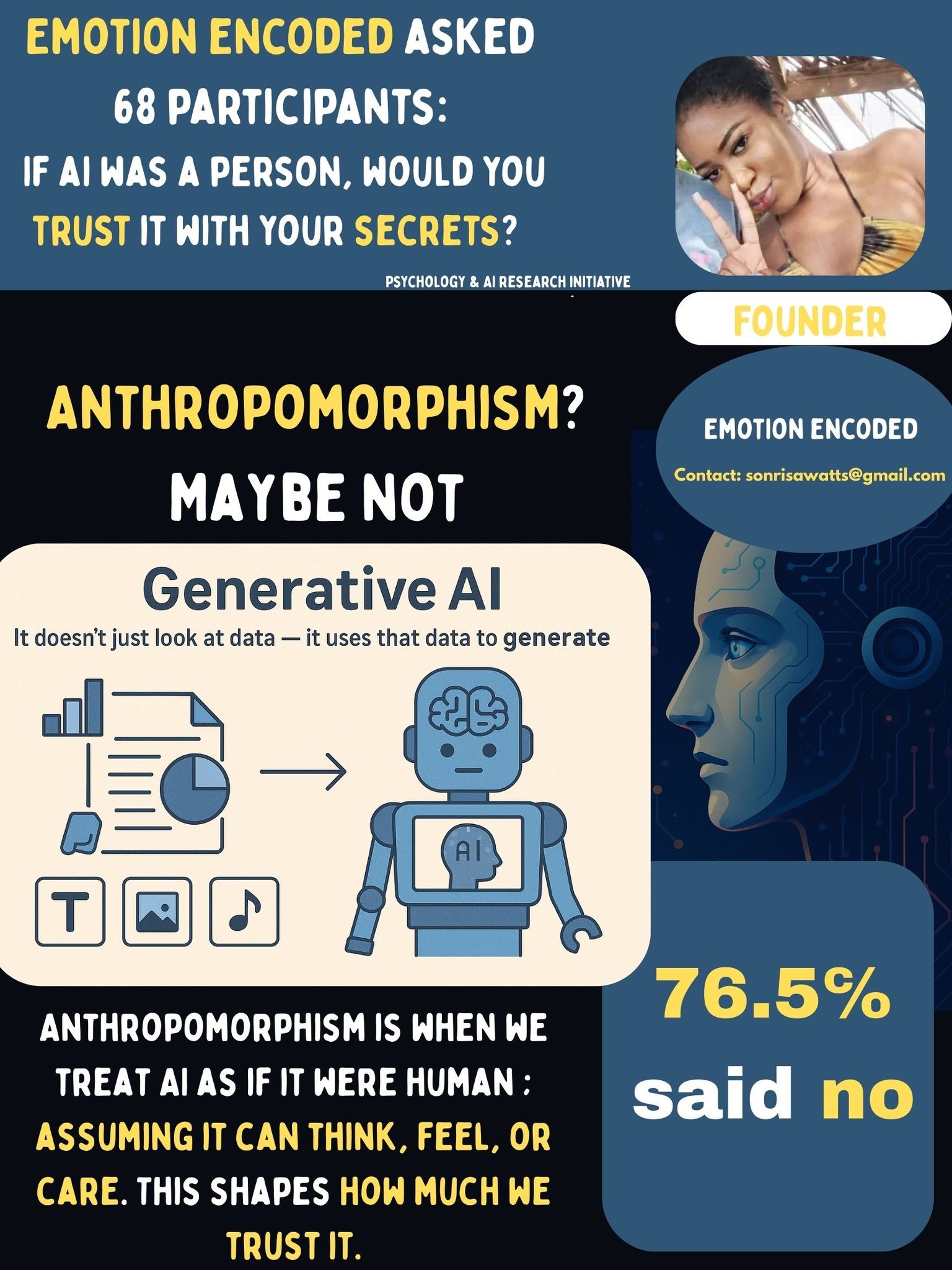Would You Trust AI with your Secrets?
🧠 Emotion Encoded 🧠

A recent survey by Emotion Encoded asked a simple, yet profoundly human question: “If AI were a person, would you trust it with your secrets?” Among our 68 respondents, the answer was a resounding, and somewhat visceral, "No." A striking 77% said no, and another 10% said "never," leaving a small amount of who would consider the possibility.
The results show just how much trust matters in AI adoption. Even when imagined as human, most people see AI as untrustworthy with sensitive information. This could likely be linked to concerns about privacy, data misuse, and how decisions are made.
There is an emotional barrier intimately linked to the concept of anthropomorphism... our innate human tendency to attribute human traits, emotions, and intentions to non-human entities. Humans do this to make the world more understandable and relatable.
In this survey, we explicitly encouraged this cognitive bias by asking respondents to imagine AI "as a person." But instead of building trust, this very act seems to have amplified the lack of it.
Emotion Encoded survey results reveal a psychological conflict. On one hand, our brains are wired to anthropomorphize, to seek social cues and connections even where none exist. On the other, our emotional intuition seems to be screaming a warning.
Understanding these feelings is crucial. As AI spreads into healthcare, finance, and law, designers and policymakers need to consider how emotional responses and cognitive biases affect trust. At Emotion Encoded, we’re mapping these perceptions to help build AI systems people can actually rely on — and to guide ethical and effective deployment.